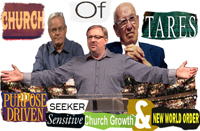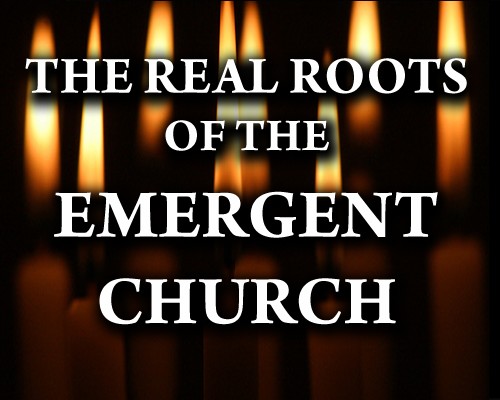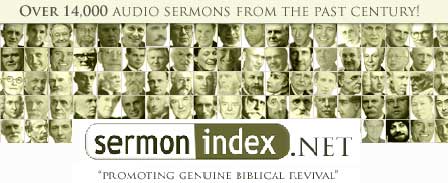 Jesus said, “I say to you, that unless your righteousness exceeds the righteousness of the scribes and Pharisees, you will by no means enter the kingdom of heaven” (Matthew 5:20). Is Jesus telling us that we cannot enter the Kingdom unless we are righteous? But I was always taught that there is none righteous, no not one. After all, our righteousness is as filthy rags to God, right? Does God view our righteousness as filthy rags? The prophet Isaiah said, “all our righteousnesses are like filthy rags” (Isaiah 64:6). Undoubtedly, this passage is one of the most frequently quoted Old Testament passages heard in modern Gospel presentations. For instance, the following quote is one of many that demonstrate this verse’s common usage:
Jesus said, “I say to you, that unless your righteousness exceeds the righteousness of the scribes and Pharisees, you will by no means enter the kingdom of heaven” (Matthew 5:20). Is Jesus telling us that we cannot enter the Kingdom unless we are righteous? But I was always taught that there is none righteous, no not one. After all, our righteousness is as filthy rags to God, right? Does God view our righteousness as filthy rags? The prophet Isaiah said, “all our righteousnesses are like filthy rags” (Isaiah 64:6). Undoubtedly, this passage is one of the most frequently quoted Old Testament passages heard in modern Gospel presentations. For instance, the following quote is one of many that demonstrate this verse’s common usage:
The righteousness of man? Inadequate, right? In fact, Isaiah said, “All our righteousness is as filthy rags…filthy rags. Very graphic term in the Hebrew. A man can’t be right with God by anything done on the human side.1
A closer look at the Isaiah passage reveals a context which leads to an opposite conclusion. In fact, in the previous verse Isaiah says, “You meet him who rejoices and does righteousness, Who remembers You in Your ways” (Isaiah 64:5). That suggests that he who does righteousness does obtain favor from God. So what does Isaiah mean with a seemingly contradictory statement that our righteousness is as filthy rags? Isaiah was offering a prayer of penitence to God on behalf of apostate Israel as a whole. Isaiah said,
You are indeed angry, for we have sinned— In these ways we continue; And we need to be saved. But we are all like an unclean thing, And all our righteousnesses are like filthy rags; We all fade as a leaf, And our iniquities, like the wind, Have taken us away. And there is no one who calls on Your name, Who stirs himself up to take hold of You; For You have hidden Your face from us, And have consumed us because of our iniquities. (Isaiah 64:5-7)
Thus, collective Israel’s righteousness was like filthy rags because they had sinned, continued in sin, and become like an unclean thing in their apostasy. Israel had no righteousness because they were in rebellion. Isaiah was not saying that the good works of individuals were as filthy rags to God. Isaiah was speaking as a representative of collective Israel. Was it true that there was “no one who calls” on the Lord’s name? Isaiah was calling on the Lord at that very moment in his prayer. Thus, he was speaking generally about the nation as a whole. The imagery of garments (i.e. filthy rags) is integral to our entering the Kingdom. In Jesus’ parable of the wedding feast in which He said,
But when the king came in to see the guests, he saw a man there who did not have on a wedding garment. So he said to him, ‘Friend, how did you come in here without a wedding garment?’ And he was speechless. Then the king said to the servants, ‘Bind him hand and foot, take him away, and cast him into outer darkness; there will be weeping and gnashing of teeth.’” (Matthew 22:11-13)
Thus when Jesus concluded, “For many are called, but few are chosen” (Matthew 22:14), the “called” refers not to those who were “not willing to come,” but to those who responded to the Gospel and showed up at the wedding feast. Yet they were removed from the wedding because they had no wedding garment. Likewise, Jesus said to the lukewarm Laodicean Church,
“Because you say, ‘I am rich, have become wealthy, and have need of nothing’—and do not know that you are wretched, miserable, poor, blind, and naked— I counsel you to buy from Me gold refined in the fire, that you may be rich; and white garments, that you may be clothed, that the shame of your nakedness may not be revealed; and anoint your eyes with eye salve, that you may see.” (Revelation 3:17,18)
To the dead church of Sardis, Jesus said,
“You have a few names even in Sardis who have not defiled their garments; and they shall walk with Me in white, for they are worthy. He who overcomes shall be clothed in white garments, and I will not blot out his name from the Book of Life; but I will confess his name before My Father and before His angels.” (Revelation 3:4,5)
This calls to mind the same imagery of Jesus’ parable of the wedding feast and the need to be clothed with a wedding garment. Furthermore, in Revelation 19:7,8, the wedding feast and marriage supper of the Lamb are brought to our attention again:
“Let us be glad and rejoice and give Him glory, for the marriage of the Lamb has come, and His wife has made herself ready.” And to her it was granted to be arrayed in fine linen, clean and bright, for the fine linen is the righteous acts of the saints. (Revelation 19:7,8)
So what does the wedding garment of Jesus’ parable represent? The bride of Christ in Revelation made herself ready for the wedding by arraying herself in fine linen, clean and white, which is “the righteous acts of the saints.” This is not being clothed in the imputed righteousness of Christ or the righteous acts of Jesus, but the righteous acts of the saints. The “called” man in Jesus’ wedding feast parable who was cast into outer darkness had no wedding garment and thus no righteous acts of his own. It is the wrinkled, spotted, filthy and defiled garment that represents a person who is stained with iniquity. Jude said, “And on some have compassion, making a distinction; but others save with fear, pulling them out of the fire, hating even the garment defiled by the flesh” (Jude 22,23). How does a garment become defiled by the flesh? Paul the Apostle explained,
[Read more...]










 Conceived in Rape & Other Exceptions
Conceived in Rape & Other Exceptions  Zeitgeist Refuted Final Cut
Zeitgeist Refuted Final Cut  Real Roots of the Emergent Church
Real Roots of the Emergent Church  Church of Tares
Church of Tares